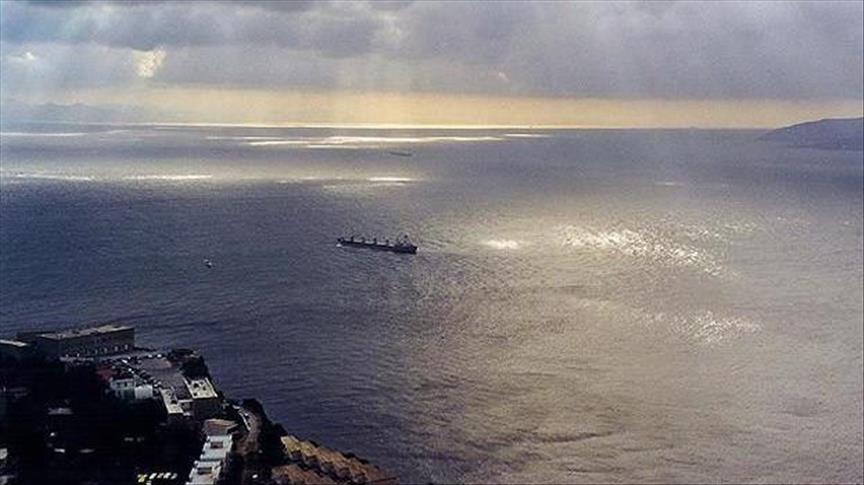
Madrid
By Alyssa McMurtry
MADRID
During more than 300 years of British rule, Gibraltar, a tiny parcel of land on the southern tip of Spain, has often proved to be a contentious issue between the two countries.
Over the centuries, the presence of a British exclave in Iberia has aggravated Spanish pride and led to numerous diplomatic spats between London and Madrid.
Now the “overseas territory” dubbed ‘The Rock’ by locals faces a fresh challenge – Britain’s potential exit from the European Union in a referendum this June.
The vote, which will see Britons, including those 30,000 living in Gibraltar, choose to leave or stay in the EU, will also see Spain renew its claim to the seven-square-kilometer [three-square-mile] territory dominated by the 426 meter [1,400 foot] Rock of Gibraltar.
Last week, Spain’s Foreign Minister Jose Manuel Garcia-Margallo warned that his government would reopen the question of Gibraltar’s ownership “the very next day” if Britain votes to leave the EU.
There are concerns that the loss of EU status could endanger Britain’s hold on the territory it has governed since 1713.
“Gibraltar will vote almost unanimously to stay in Europe,” Dominique Searle, a spokesman for the Gibraltar government, told Anadolu Agency.
The rocky peninsula has been an important source of conflict since it was handed over to Britain after the War of Spanish Succession by the Treaty of Utrecht in 1713. Since then, it has been Spain’s policy to try to get it back.
Now, experts warn if Britain and Gibraltar leave the European Union, a great number of the laws that have maintained The Rock’s sovereignty against Spanish claims may no longer stand.
Franco’s Spain imposed a blockade on the region between 1968 and 1985 – cutting off all access to the land border and communication for Gibraltarians.
The 20-minute journey that it usually took to get into Spain became a day-long boat voyage; the supply of fresh food was greatly reduced and the cost of living soared.
“I remember the day it happened: workers crying, people shouting at their families from the other side, someone holding up a baby and the person across the border waving at it… it was a difficult time,” Searle recounts.
The border was fully reopened only after Spain joined the EU in 1986.
Dr. Gerry O'Reilly, International Affairs Co-ordinator at Dublin City University, told Anadolu Agency that Spain’s EU membership changed its approach to the disputed territory.
“At that time, the U.K. was insisting on the opening of the border and if Spain wished to join the EU and gain U.K. support, Spain had to abide by EU rules.
“Hence those U.K. government arguments would be turned upside-down in the event of a British exit from the EU.”
More contention came in 2013 when Spain’s foreign minister floated the idea of imposing border-crossing tolls for motorists driving into Gibraltar. This plan, which upset Gibraltar and the U.K., was shut down by the European Commission which said it would breach EU law.
So, while Spain may not be threatening to invade Gibraltar in the case of a Brexit, as some British tabloids have suggested, Madrid could use its leverage at the frontier to draw Britain into bilateral talks about the status of The Rock.
Jesus Verdu, professor of international relations at the University of Cadiz, says Madrid remains alert to tensions over the tiny territory.
“It’s a highly sensitive issue in Spain’s foreign policy and the current Spanish government hasn’t been able to, or wanted to, liberate itself from old, rancid prejudices of the Franco era.
“That’s why common membership of the EU has served as a normalizing and sweetening element for Spain and the U.K.”
Searle pointed out that the current Popular Party government, with Mariano Rajoy as its leader, has been the most hostile towards Gibraltar he’s seen “in a very long time”.
“Spain continues at every opportunity to try to block everything related to Gibraltar,” Searle added.
Whether or not this government, with Margallo as the exterior minister, will be in power at the time of the Brexit is unclear.
The Popular Party did win a minority in Spain’s inconclusive December elections but has not been able to form a government.
If no government can be agreed upon in the upcoming months, snap elections will be called for June 26 – three days after Britain’s referendum on the EU.
Spain, which is currently a non-permanent member of the UN Security Council, also has contested land outside of its borders. The Moroccan government continues to call for the transfer of sovereignty of Spain’s north African exclaves of Ceuta and Melilla.
However, akin to how the majority of Gibraltarians identify as British, the populations of Ceuta and Melilla tend to identify as Spanish.
While there are only 23,000 eligible voters in Gibraltar, Searle predicts that there will be extremely high turnout. Not only, he says, are people worried about the small rock becoming isolated, but also because of the loss of the common market.
Gibraltar’s nearly $2 billion GDP is based largely on financial services, shipping, tourism and internet gambling, all of which would be influenced by leaving the European Union.
“This all depends on the scale of the Brexit, but I can see zero gains in leaving the EU,” said Searle.
Anadolu Agency website contains only a portion of the news stories offered to subscribers in the AA News Broadcasting System (HAS), and in summarized form. Please contact us for subscription options.

